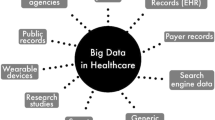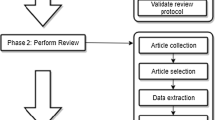Abstract
The process of acquiring, maintaining, updating, and using appropriate domain-specific knowledge has played an integral role in knowledge-based decision support systems. Although each of these stages is necessary and important, knowledge-based systems that operate in dynamic environments can become quickly stale when core knowledge embedded in these systems are not continually updated to reflect changes in the system over time. Clearly, stale knowledge could be faulty and cannot be relied upon for making decisions and a knowledge-based decision support system with stale knowledge may even be detrimental in the long run. We consider a generic adaptive DSS framework with learning capabilities that continually monitors itself for possible deficit in the knowledge-base, expired or stale knowledge already present in the knowledge-base, and availability of new knowledge from the environment. The knowledge-base is updated through incremental learning. We illustrate the generic knowledge-based adaptive DSS framework using examples from three different application areas. The framework is flexible in being able to be modified or extended to accommodate the idiosyncrasies of the application of interest. The framework considered is an example artifact that naturally satisfies the Design Science perspective.







Similar content being viewed by others
References
H.A. Simon, The New Science of Management Decisions (Harper and Row, New York, 1960)
G.A. Gorry, M.S. Scott Morton, A framework for management information systems. Sloan Manage. Rev. 13, 55–70 (1971)
C. Carlsson, T. Jelassi, P. Walden, Intelligent systems and active DSS. HICSS 5, 4–8 (1998)
R.H. Bonczek, C.W. Holsapple, A. Whinston, Foundations of Decision Support Systems (Academic Press, 1981)
B.L. Dos Santos, C.W. Holsapple, A framework for designing adaptive DSS interfaces. Decis. Support Syst. 5, 1–11 (1989). doi:10.1016/0167-9236(89)90024-9
M.J. Shaw, S. Piramuthu, in A Learning-Enhanced Adaptive Decision Support System Framework, ed. by F. Burstein, C.W. Holsapple. Handbook on Decision Support Systems—I (Springer-Verlag, 2008), pp. 697–717
A.R. Hevner, S.T. March, J. Park, S. Ram, Design science in information systems research. MIS Q. 28(1), 75–105 (2004)
A.R. Hevner, A three cycle view of design science research. Scand. J. Inf. Syst. 19(2), 87–92 (2007)
J. Livari, A paradigmatic analysis of information systems as a design science. Scand. J. Inf. Syst. 19(2), 39–64 (2007)
S.T. March, V.C. Storey, Design science in the information systems discipline: an introduction to the special issue on design science research. MIS Q. 32(4), 725–729 (2008)
V. Vaishnavi, W. Kuechler, Design Science Research Methods and Patterns: Innovating Information and Communication Technology (Auerbach Publications, New York, 2007)
M.L. Markus, A. Majchrzak, L. Gasser, A design theory for systems that support emergent knowledge processes. MIS Q. 26(3), 179–212 (2002)
D.H. Wolpert, W.G. Macready, No Free Lunch Theorems for Search. Technical Report SFI-TR-05-010 (Santa Fe Institute, Santa Fe, New Mexico, 1995)
S. Piramuthu, N. Raman, M.J. Shaw, Decision support system for scheduling a flexible flow system: incorporation of feature construction. Ann. Oper. Res. 78, 219–234 (1998). doi:10.1023/A:1018902200919
M.J. Shaw, Knowledge-based scheduling in flexible manufacturing systems: an integration of pattern-directed inference and heuristic search. Int. J. Prod. Res. 15(5), 353–376 (1988)
M.J. Shaw, S.C. Park, N. Raman, Intelligent scheduling with machine learning capabilities: the induction of scheduling knowledge. IIE Trans. 24, 156–168 (1992). doi:10.1080/07408179208964213
S. Piramuthu, Knowledge-based framework for automated dynamic supply chain configuration. Eur. J. Oper. Res. 165, 219–230 (2005). doi:10.1016/j.ejor.2003.12.023
S. Piramuthu, Knowledge-based web-enabled agents and intelligent tutoring systems. IEEE Trans. Educ. 48(4), 750–756 (2005). doi:10.1109/TE.2005.854574
M. Virvou, K. Kabassi, F-SMILE: An Intelligent Multi-Agent Learning Environment, in IEEE International Conference on Advanced Learning Technologies (ICALT02) (2002), pp. 144–149
R. Quinlan, SEE5.0, Rulequest Research (2002), http://www.rulequest.com. Accessed 8 April 2008
S.T. March, A. Hevner, S. Ram, Research commentary: an agenda for information technology research in heterogeneous and distributed environment. Inf. Syst. Res. 11(4), 327–341 (2000). doi:10.1287/isre.11.4.327.11873
Author information
Authors and Affiliations
Corresponding author
Rights and permissions
About this article
Cite this article
Piramuthu, S., Shaw, M.J. Learning-enhanced adaptive DSS: a Design Science perspective. Inf Technol Manag 10, 41–54 (2009). https://doi.org/10.1007/s10799-008-0045-y
Published:
Issue Date:
DOI: https://doi.org/10.1007/s10799-008-0045-y




